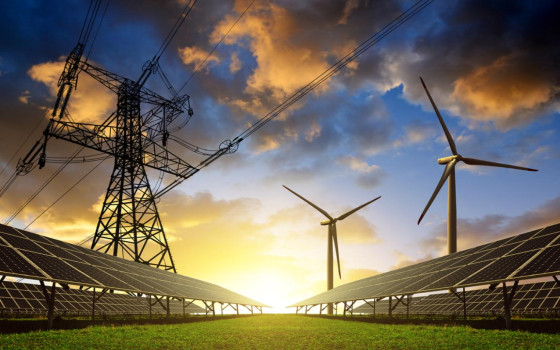
Ministerial meeting to discuss the future of the EU's energy infrastructure and the expansion of clean technologies... Germany leads the way in new wind power plants

- Europe and Arabs
- Thursday , 4 September 2025 10:47 AM GMT
Brussels - Copenhagen: Europe and the Arabs
Today and tomorrow, EU energy ministers will meet in Copenhagen for an informal ministerial meeting, under the Danish Presidency of the Council of the European Union. The meeting will focus on the future of Europe's energy architecture, the expansion of clean technologies, and the expansion of energy infrastructure. According to the current Danish EU Presidency, "The first day will include a joint field visit to showcase key technologies contributing to the transition to a carbon-neutral, sustainable, and competitive Europe. In the evening, the ministers will gather for a joint dinner in the heart of Copenhagen, providing an opportunity to exchange views in an informal setting.
The second day will feature a diverse program of thematic sessions, including plenary debates, roundtable discussions, and parallel mini-panel discussions.
The meeting aims to foster dialogue on policy directions and enhance practical cooperation between member states to advance the European green transition, energy independence, and competitiveness.
This comes after Germany led Europe in new wind energy installations in the first half of 2025, although overall growth on the continent was lower than expected, according to data from the European Wind Energy Industry Association (WindEurope).
The data showed that onshore and offshore wind turbines were installed in Germany with a total capacity of approximately 2.2 gigawatts, placing it in the top 10." The European Union topped the European rankings. Spain followed with 889 MW, followed by the United Kingdom with 760 MW.
The union explained that 6.8 GW of new wind energy capacity was installed across Europe, including 5.3 GW within the 27 EU member states.
It had previously forecast 22.5 GW of new wind energy capacity this year, but has now lowered its estimate to 19 GW.
The union cited the slow pace of electricity distribution and transmission, limited grid capacity, ongoing permitting issues, and restrictions on grid capacity and vessel movements as issues hindering offshore wind energy.
European Target
Looking ahead, the union expects EU wind energy capacity to reach 344 GW by 2030. Renewable energy is expected to account for 42.5% of the EU's total energy consumption by that year.
To achieve this target, wind energy capacity must increase to 425 GW, according to the union.
The union stated that the project portfolio Generally well-stocked, with strong expansion expected to continue beyond 2030.












No Comments Found